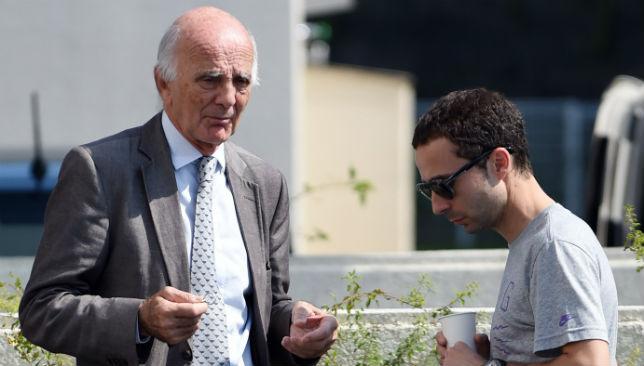
It could be weeks before doctors know how badly damaged Jules Bianchi's brain is after his sickening crash in the Japanese Grand Prix, a specialist warned Wednesday.
The French Formula One driver was under constant supervision following the weekend smash, with his worried parents regularly by his bedside.
"Jules remains in the Intensive Care Unit of the Mie General Medical Center in Yokkaichi. He has suffered a diffuse axonal injury and is in a critical but stable condition," said a statement issued by the family and the hospital. "The medical professionals at the hospital are providing the very best treatment and care and we are grateful for everything they have done for Jules since his accident."
The 25-year-old Bianchi was knocked unconscious in a horrific high-speed crash into a recovery vehicle during Sunday's rain-sodden Japanese Grand Prix. He underwent emergency brain surgery, with doctors saying he was critically ill.
Motor racing governing body the FIA, meanwhile, said Wednesday it had ordered a report into the crash to be supervised by its top race director.
FIA president Jean Todt has asked Charlie Whiting, the Formula One race director, "to carry out a report on the precise circumstances which led to the accident," the federation said in a statement sent to AFP.
A diffuse axonal injury describes trauma that is spread across the brain, rather than in one place, and is caused by the shockwave from the sudden impact of the crash travelling through the brain.
This causes bruising and kills cells.
The body's response to the injury — swelling — exacerbates the problem because it restricts blood flow to the brain, causing more damage.
Experts say recovery rates from this kind of injury, which is frequently caused by vehicle crashes, are not encouraging.
"Whether a patient regains consciousness and recuperates fully or suffers after-effects depend on the degree of the injury and which part of the brain was hurt," said Shinji Nagahiro, professor of the Faculty of Medicine at the University of Tokushima in western Japan.
"Some have to stay in bed for years with their bodies paralysed," while others respond to rehabilitation, said Nagahiro, incoming chairman of the Japan Society of Neuro-traumatology.
"Generally speaking, doctors have to wait weeks or at least a month to give a prognosis of the injury or its after-effects," he said.
Bianchi's parents Philippe and Christine, who flew to Japan after the race, spent some of Wednesday morning with their son.
Doctors at the hospital have waived normal restrictions on visiting hours, to allow them to see him at any time, a hospital source told AFP. Japanese medical care is world class, and both the family and visiting clinicians have expressed their confidence in local physicians.
The family statement said Professor Gerard Saillant, who treated Michael Schumacher after his near-fatal skiing accident last year, and Professor Alessandro Frati, a neurosurgeon from the University of Rome La Sapienza, were there.